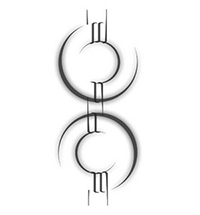Professor Christiane Maaß (University of Hildesheim, Germany):
Hi ChatGPT, translate this text into Easy Language. Is the new Easy Language translator a machine?
We are surrounded by dysfunctional texts that are burdened with various communication barriers: They are not where we are looking for them, they are written in fonts that are too small, they are completely incomprehensible or unacceptable. Such texts make it difficult for us to act on their basis. They need editing. Removing communication barriers – that is translation. Accessible communication takes into account the diversity of communication partners. This diversity can be the result of differing interests and expertise in certain areas, differing educational opportunities, stressful life events such as flight or migration, but also disability. In recent years, accessible communication has become a major issue in Europe and around the world: Easy Language, Plain Language, subtitling for the hearing impaired, text-to-speech interpreting, sign language interpreting, audio description for the blind. An expert field has emerged here, a labour market, study programmes, scientific research. Recently, a new player has been added: artificial intelligence. Machine translation – between different languages, but also intralingually in different levels of comprehensibility – has recently improved enormously in quality. What does it mean that the machine has emerged in the field of accessible communication? Are human translators still necessary and what is their role? Who can use the machine and for what? How is the field of accessible communication changing as a result? In my talk, I will focus on Easy Language translation and try to find at least a preliminary answer to the question: Is the new Easy Language translator a machine?
- Prof. Dr. Christiane Maaß holds the Chair of Media Linguistics at the University of Hildesheim. Since 2014, she has been the Director of the Research Center for Easy Language and since 2018, she has headed the Master’s degree program in Accessible Communication at the University of Hildesheim. She is the author and co-author of five monographs and numerous papers in journals and anthologies on Easy and Plain Language and co-editor of the Handbuch Barrierefreie Kommunikation (2019), the English translation of which (“Handbook of Accessible Communication”) is currently in print. She is co-editor of the book series “Easy – Plain – Accessible” (published with Frank & Timme), which collects international research in the field of accessible communication. She heads a doctoral research group on the topic of accessible health communication in cooperation with the Hannover Medical University. Chris is driven by the question of how communication barriers can be overcome: in the most diverse situations, between the most diverse communication partners, with the most diverse tools and ressources.
Assistant Professor Ellen Nathues (University of Twente, the Netherlands):
Differences in Dialogue: The Many Voices We Can Encounter in Communication
Imagine sitting in any team meeting. Heaps of talk and sound around you. Thoughts are exchanged, ideas fly by, opinions clash and collide. One person pulls up a graphic on the screen, another is hastily flickering through the pages of the latest report, a third points at a poster hanging on the wall. Everyone in the room is trying to do something together, yet their many voices diverge more than converge. This buzzing polyphony is only intensified by all the additional voices meeting participants make present through what they say and do: one opinion expresses the feasibility concerns of engineers, another articulates business developers’ hunger for the ‘next big thing.’ The graphic pulled up on the screen displays market predictions while the report makes present the latest revenue numbers. The poster on the wall that is being pointed at shows the company’s founder, reminding everyone of her core values. In short, numerous voices—human as well as other-than-human ones—can be heard in this and any other type of interaction; and this illustrative exercise could have gone on and on… In my talk, I will revisit the notion of ‘voices’ and outline ideas for how we can hear more of them. I will do so in light of questions around diversity and community, in line with VAKKI’s 2024 focus. Is diversity a matter of listening closely enough or of giving every voice a stage? How do voices bind and connect us, and in what ways do they tear us apart? And where is silence in all of this? This talk is an invitation to together rethink the voices we can and cannot (yet) hear in communication as well as what this means for how we, as people, come together or not.
- Dr. Ellen Nathues works as an Assistant Professor of Organization, Collaboration & Communication at University of Twente in the Netherlands. She is also the initiator of ‘The CCO Data Collective’ and an affiliated member of the Leuphana Organization Studies (LOST) research group. Her research broadly focuses on processes of organization and communication, particularly in pluralistic, open, and/or temporary contexts such as interorganizational collaboration or learning communities. More specifically, she is interested in questions of multivoicedness, agency, materiality, and multimodality. Her work is mainly of ethnographic, qualitative nature, and she also has a strong interest in methodological work. So far, her research has been published in Organization Studies, Strategic Organization, and Small Group Research, as well as in edited handbooks. She has received various awards for her work, including Top Papers at sub-themes of the European Group of Organization Studies and Top Papers at the Organizational Communication division of the International Communication Association.
